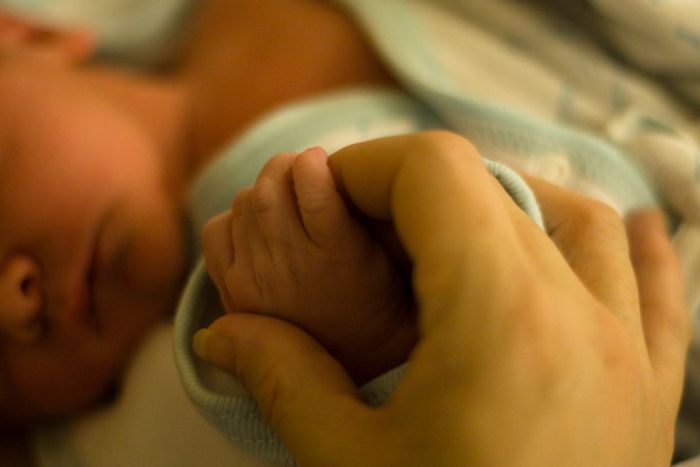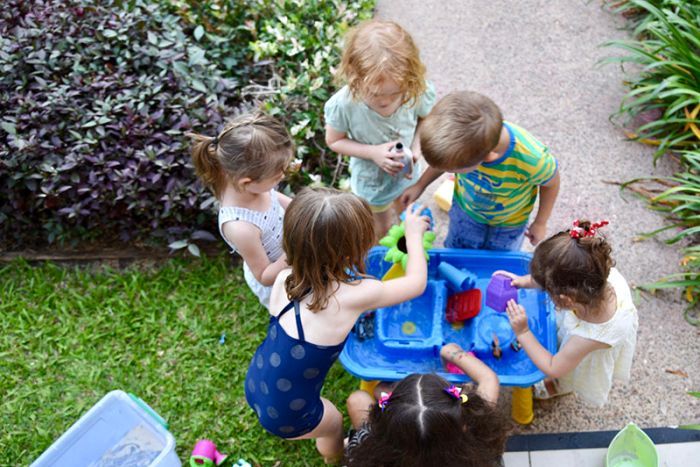The Barriers. The Impediments. The reason why Australian women participate less in the workforce than countries like the UK, New Zealand, Canada, and Germany. The Annoying Little Critters that get in the way of productivity.
Yes, it’s children I’m talking about.
The Bureau of Statistics has released new stats that show that children, or more specifically their annoying habit of needing an adult caregiver, are the main barrier to female workforce participation.
The 2016-17 Multipurpose Household Survey shows us that more than 100,000 Australian women wanted to re-join the workforce or work more but couldn’t because they were caring for the buggers.
However 39 per cent of the women who reported childcare as the main barrier to work also confessed that they actually preferred to look after their children. Shock, horror.
Evolution at odds with the economy
Humans and many other species have this thing that happens after a baby is born. The primary caregiver and the baby form a mutual attachment so that the pair maintains contact.
Essentially the mother (and yes, it usually is the mother) has her maternal behaviours activated by the actions of an infant that does its darned best to elicit her care.
The child is hardwired to its mother’s smell, and the sound of her voice. The mother becomes responsive to her infant’s face, its vocalisations and its touch.
Because a child needs to be attached to someone to survive, evolution has led it to be programmed from before birth to attach to a caregiver as soon as it hits the deck.
But this evolutionary necessity does not suit the modern world. It does not suit the neo-liberal world view of economic growth as the key driver of all actions and public policy.
To achieve maximum GDP growth Australia needs more workforce participants. Specifically, we need more women in work. So mothers are coerced, cajoled and shamed to re-enter the workforce as soon as possible after giving birth.
Faced with the knowledge that some mothers don’t want to return to work, and are in fact biologically programmed to want to hang with their child, is it time that we stopped viewing those children and their care as barriers to anything?
Or how about we make darn sure that there are enough incentives to overcome mother’s desires and evolution?
What about the 39 per cent?
Of the women that told the ABS they want to work more, a quarter say that childcare is their main barrier — 20 per cent of these women said cost was the barrier, while 14 per cent said it was availability.

But remember those brave 39 per cent told the statisticians they actually wanted to look after their child? They did not see their child as a barrier to anything.
So if we want these women to work, we clearly need incentives. Like better support for women who either want to, or agree to, re-join the workforce.
Cheap, high quality and plentiful education and care would be a great incentive.
These might overcome the evolutionary need and want for mothers (or substitute caregivers) and children to hang out together while the child is young.
Value mothers and children
Every few years we have an outcry about paid parental leave and better childcare and then it dies down again with few real changes.
But you know those countries with the big percentages of women in the workforce? A lot of them are the ones that also have the jealousy inducing systems of parental leave and early education and care.
They truly get that valuing what mothers do with children matters heaps and if they aren’t doing it a great early education and care system better exist to take up the slack.
Interestingly the Multipurpose Household Survey also showed that 55 per cent of all Australians over 18 don’t work full time. Only 26 per cent of these wanted to work more. The rest were quite happy working part time or not working at all.
That’s 7.5 million people who are perfectly happy not working on a full-time basis.
Maybe this is in fact the root cause of the problem. Maybe mothers with children are thinking the same thing: that there are other just as rewarding things to do as work, once your basic needs have been met.
And what more rewarding thing could anyone possibly do than caring for a brand new human being?
First published on ABC News, December 14 2017
Lisa Bryant is a childcare consultant.



